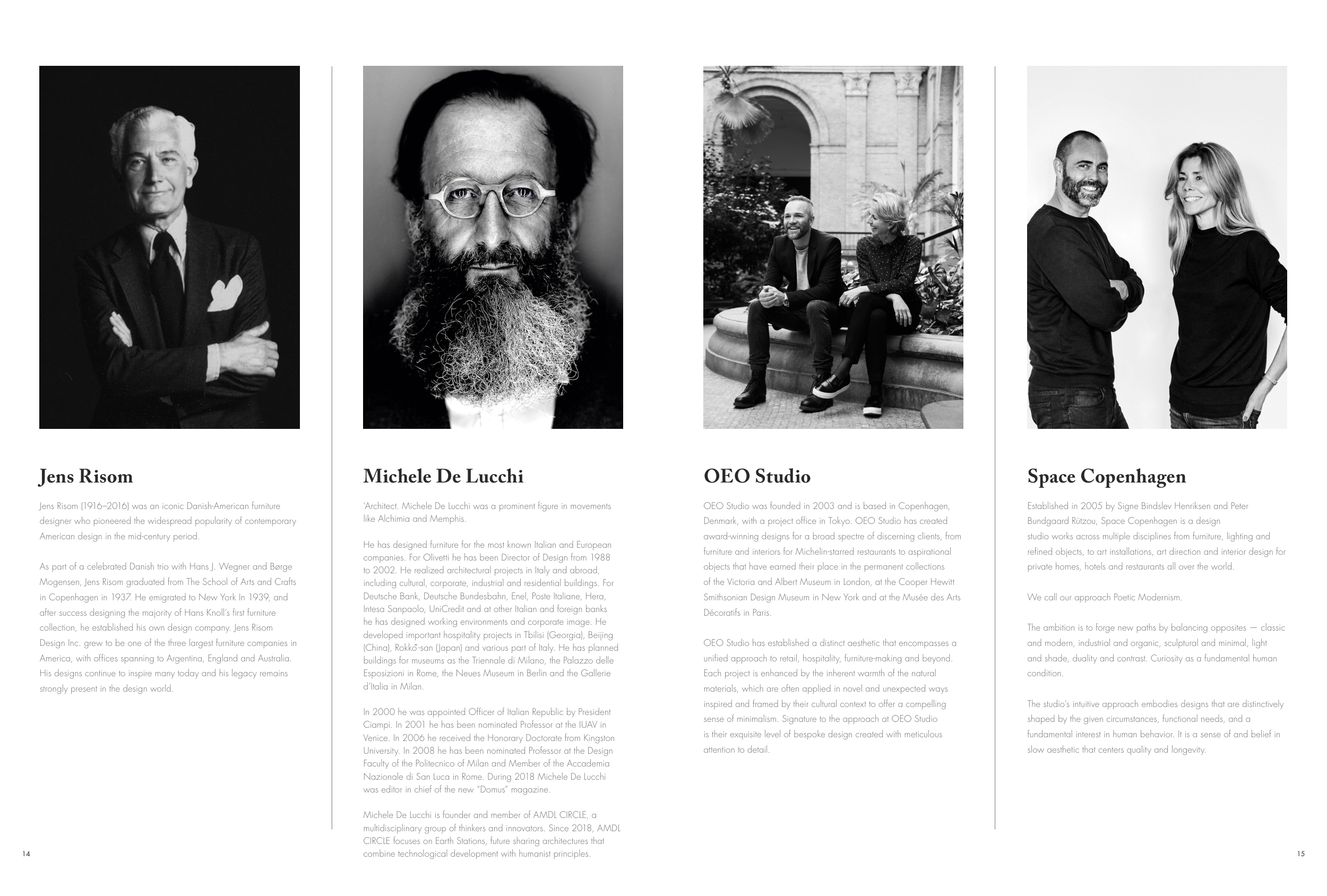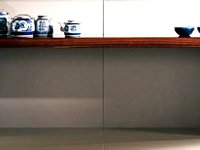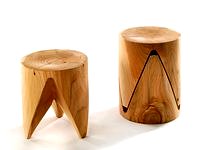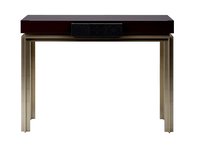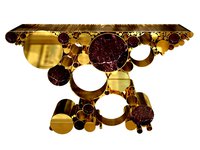15
14
Jens Risom
Jens Risom (1916–2016) was an iconic Danish-American furniture
designer who pioneered the widespread popularity of contemporary
American design in the mid-century period.
As part of a celebrated Danish trio with Hans J. Wegner and Børge
Mogensen, Jens Risom graduated from The School of Arts and Crafts
in Copenhagen in 1937. He emigrated to New York In 1939, and
after success designing the majority of Hans Knoll’s first furniture
collection, he established his own design company. Jens Risom
Design Inc. grew to be one of the three largest furniture companies in
America, with offices spanning to Argentina, England and Australia.
His designs continue to inspire many today and his legacy remains
strongly present in the design world.
OEO Studio
OEO Studio was founded in 2003 and is based in Copenhagen,
Denmark, with a project office in Tokyo. OEO Studio has created
award-winning designs for a broad spectre of discerning clients, from
furniture and interiors for Michelin-starred restaurants to aspirational
objects that have earned their place in the permanent collections
of the Victoria and Albert Museum in London, at the Cooper Hewitt
Smithsonian Design Museum in New York and at the Musée des Arts
Décoratifs in Paris.
OEO Studio has established a distinct aesthetic that encompasses a
unified approach to retail, hospitality, furniture-making and beyond.
Each project is enhanced by the inherent warmth of the natural
materials, which are often applied in novel and unexpected ways
inspired and framed by their cultural context to offer a compelling
sense of minimalism. Signature to the approach at OEO Studio
is their exquisite level of bespoke design created with meticulous
attention to detail.
Space Copenhagen
Established in 2005 by Signe Bindslev Henriksen and Peter
Bundgaard Rützou, Space Copenhagen is a design
studio works across multiple disciplines from furniture, lighting and
refined objects, to art installations, art direction and interior design for
private homes, hotels and restaurants all over the world.
We call our approach Poetic Modernism.
The ambition is to forge new paths by balancing opposites — classic
and modern, industrial and organic, sculptural and minimal, light
and shade, duality and contrast. Curiosity as a fundamental human
condition.
The studio’s intuitive approach embodies designs that are distinctively
shaped by the given circumstances, functional needs, and a
fundamental interest in human behavior. It is a sense of and belief in
slow aesthetic that centers quality and longevity.
Michele De Lucchi
‘Architect. Michele De Lucchi was a prominent figure in movements
like Alchimia and Memphis.
He has designed furniture for the most known Italian and European
companies. For Olivetti he has been Director of Design from 1988
to 2002. He realized architectural projects in Italy and abroad,
including cultural, corporate, industrial and residential buildings. For
Deutsche Bank, Deutsche Bundesbahn, Enel, Poste Italiane, Hera,
Intesa Sanpaolo, UniCredit and at other Italian and foreign banks
he has designed working environments and corporate image. He
developed important hospitality projects in Tbilisi (Georgia), Beijing
(China), Rokko ̄-san (Japan) and various part of Italy. He has planned
buildings for museums as the Triennale di Milano, the Palazzo delle
Esposizioni in Rome, the Neues Museum in Berlin and the Gallerie
d’Italia in Milan.
In 2000 he was appointed Officer of Italian Republic by President
Ciampi. In 2001 he has been nominated Professor at the IUAV in
Venice. In 2006 he received the Honorary Doctorate from Kingston
University. In 2008 he has been nominated Professor at the Design
Faculty of the Politecnico of Milan and Member of the Accademia
Nazionale di San Luca in Rome. During 2018 Michele De Lucchi
was editor in chief of the new “Domus” magazine.
Michele De Lucchi is founder and member of AMDL CIRCLE, a
multidisciplinary group of thinkers and innovators. Since 2018, AMDL
CIRCLE focuses on Earth Stations, future sharing architectures that
combine technological development with humanist principles.


